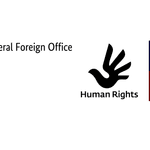
Webinar Series on Human Rights and the U.S. Death Penalty
In 2022, DPIC hosted a series of webinars on topics related to human rights in the U.S. death penalty
DPIC Analysis — At Least 1,300 Prisoners are on U.S. Death Rows in Violation of U.S. Human Rights Obligations
Half of U.S. death row has been imprisoned 20 years or more, in violation of international human rights agreements
Overview
International human rights treaties declare that “Every human being has the inherent right to life.” This right, set forth in Article 6 of the International Covenant on Civil and Political Rights (ICCPR), adopted by the United Nations (UN) in 1966, further provides that “no one shall be arbitrarily deprived of his life.” Article 6 further states that “In countries which have not abolished the death penalty, sentence of death may be imposed only for the most serious crimes in accordance with the law in force at the time of the commission of the crime.” The ICCPR prohibits the use of the death penalty “for crimes committed by persons below eighteen years of age” and bars the execution of women while they are pregnant. Article 7 of the ICCPR declares that “No one shall be subjected to torture or to cruel, inhuman or degrading treatment or punishment.”
When the United States ratified the ICCPR in 1992, it did so with specific reservations relating to the use of the death penalty. First, it “reserve[d] the right, subject to its Constitutional constraints, to impose capital punishment on any person (other than a pregnant woman) duly convicted under existing or future laws permitting the imposition of capital punishment, including such punishment for crimes committed by persons below eighteen years of age.” Second, it stated that “the United States considers itself bound by article 7 to the extent that ‘cruel, inhuman or degrading treatment or punishment’ means the cruel and unusual treatment or punishment prohibited by the Fifth, Eighth, and/or Fourteenth Amendments to the Constitution of the United States.” It further declared that the treaty’s provisions “are not self-executing,” meaning that they are not enforceable under U.S. domestic law without enabling legislation by Congress.
The ICCPR establishes the end of the death penalty as a human rights goal, declaring that “Nothing in [Article 6] shall be invoked to delay or to prevent the abolition of capital punishment by any State Party to the present Covenant.” This goal was codified in the Second Optional Protocol to the International Covenant on Civil and Political Rights, aiming at the abolition of the death penalty, which was promulgated on December 15, 1989. As of December 2022, ninety nations were parties to the optional protocol.
Article IV of the American Convention on Human Rights expands upon the right to life recognized in the ICCPR, providing that the death penalty “shall not be extended to crimes to which it does not presently apply” and “shall not be re-established in states that have abolished it.” It also provides that capital punishment shall not be imposed upon individuals who were age 70 or older at the time of the offense, or while a petition seeking clemency is pending decision. The United States is not a party to the American Convention.
Some of the other international human rights treaties that have an impact on the administration of capital punishment in the U.S. are: the Universal Declaration of Human Rights, the American Declaration of the Rights and Duties of Man, the International Convention on the Elimination of All Forms of Racial Discrimination, the Convention on the Rights of the Child, the Vienna Convention on Consular Relations, and the United Nations Standard Minimum Rules for the Treatment of Prisoners (the Nelson Mandela Rules).
At Issue
Globally, the death penalty is typically examined through a human rights framework, but the U.S. generally views the issue through a criminal legal lens. Annual UN reports on the use of capital punishment worldwide regularly focus on the ways in which the administration of the death penalty violate fundamental human rights, including the denial of due process, racial discrimination, secrecy, and inhumane conditions of confinement and methods of execution. The European Union has repeatedly stated its opposition in all circumstances to capital punishment as an inherent violation of the human right to life, as has Pope Francis on behalf of the worldwide Catholic Church. Human rights organizations such as Amnesty International and Human Rights Watch have also stated their universal opposition to the death penalty.
This discrepancy between international and domestic discourse is reflected in the a lack of emphasis on human rights in the U.S.. In August 2022, UN Committee Expert and Country Rapporteur Faith Dikeledi Pansy Tlakula, on behalf of the UN Committee on the Elimination of Racial Discrimination, “expressed concern at the lack of an institutionalised coordinating mechanism such as a national human rights institution” in the U.S.
In 2007, the UN General Assembly adopted a resolution calling for a worldwide moratorium on the death penalty with a view to abolition. In each of the eight General Assembly biennial sessions since, the UN has approved new versions of this resolution, with its December 15, 2022 vote receiving 125 votes in favor, 37 against, and 22 abstentions. The United States, along with Iran, Saudi Arabia, North Korea, China, and Vietnam, voted no. A memorandum explaining the U.S. vote asserted that “judicial enforcement of the Eighth Amendment of the U.S. Constitution ensures substantive due process that applies at both the federal and state levels and prohibits methods of execution that would constitute cruel and unusual punishment.”
A July 2022 report of the UN Secretary-General on the Question of the Death Penalty noted that “170 States have abolished or introduced a moratorium on the death penalty either in law or in practice, or have suspended executions for more than 10 years.” Abolition of the death penalty is a prerequisite for membership in the European Union and the U.S. remains an outlier as one of the only western democracies to retain capital punishment.
The U.S. rarely ratifies international human rights instruments and when it does, it typically declares them non-self-executing and includes reservations exempting itself from certain provisions. The five ratifications of human rights treaties by the U.S. are notably fewer than the numbers ratified by its neighbors, Canada (13) and Mexico (16), and its allies in Europe, Australia, and New Zealand.
What DPIC Offers
In 2022, DPIC undertook a new project on Human Rights and the U.S. Death Penalty that featured a series of events and activities undertaken with the support of the Foreign Office of the Federal Republic of Germany. The events included a live presentations on human rights and the death penalty in Berlin and at the Germany Embassy in Washington, D.C., a webinar series examining various policy issues relating to the U.S. administration and use of the death penalty, the recording of a podcast viewing racial issues in the administration of the U.S. death penalty through a human rights lens, and the first of DPIC’s human rights webpages. The webinars examined Race, Human Rights, and the U.S. Death Penalty; Human Rights, Excessive Punishment, and Conditions of Death-Row Confinement in the U.S., and Secrecy, Execution Methods, & the International Response.
DPIC provides webpages on Foreign Nationals on U.S. Death Row, including violations of U.S. human rights obligations to provide capitally charged defendants notice of their right to consular assistance and on major reports on human rights issues in the death penalty worldwide. These include Amnesty International’s annual reports on global use of the death penalty, Harm Reduction International’s reports on the use of the death penalty for non-violent drug offenses in violation of international law, and the Cornell Center for the Death Penalty Worldwide’s report on the application of the death penalty against women. DPIC also offers human rights analysis of the confinement of prisoners on death rows across the U.S., documenting more than 1,500 violations of U.S. human rights obligations.

DPIC would like to especially thank our former Executive Director, Robert Dunham, for his inspiration in envisioning and developing this human rights project.
We would also like to acknowledge the generous assistance from the Foreign Office of the Federal Republic of Germany for encouraging and supporting this focus on human rights and the death penalty.
News & Developments
News
Dec 04, 2024
Worldwide Monthly Roundup: China, Iran, Saudi Arabia, Singapore, and Vietnam

According to numbers reported by Agence France-Presse, Saudi Arabia executed 303 people in 2024 — the nation’s highest ever total, and currently the second highest known execution total worldwide for this year. November alone saw the execution of more than 100 foreign nationals, nearly triple the number in each of the past two years. UN human rights experts expressed concern following the December 3 execution of three Egyptian nationals, calling on the government to halt the pending…
Read MoreNews
Nov 06, 2024
Worldwide Wednesday International Roundup: Iran, Pakistan, Saudi Arabia, and Vietnam
According to Norway-based Iran Human Rights (IHRNGO), October saw the highest monthly execution total in Iran since 2007, when the organization began documenting executions. There were at least 166 executions last month, bringing the yearly total to 651 executions over the past 10 months. Of the October executions identified by IHRNGO, only 12%, or 20 executions, were reported by official sources. Eleven Baluch and nine Kurdish people were among those executed. The increase in number of…
Read MoreNews
Oct 02, 2024
Worldwide Wednesday International Roundup: Democratic Republic of the Congo, Iran, Iraq, Saudi Arabia, Taiwan, United States, and Vietnam
On September 13, 2024, 37 people, including three Americans, who were “charged with terrorism, murder, criminal association and illegal possession of weapons, among other charges” for their participation in an attempted coup in May were convicted and sentenced to death by a military court. Richard Bondo, lawyer for the three Americans, filed an appeal on Tuesday, September 17, 2024. Mr. Bondo argues that since the DRC is a member of the Treaty of Rome, the reinstatement of the death penalty…
Read MoreNews
Sep 04, 2024
Worldwide Wednesday International Roundup: China, Democratic Republic of the Congo, India, Iran, Saudi Arabia, Singapore, and Somalia
The Aprajita Woman and Child (West Bengal Criminal Laws Amendment) Bill, which outlines the death penalty for rape resulting in the victim’s death or “vegetative state,” was adopted by the West Bengal government in eastern India on September 3, 2024. Under international law, it is unlawful to prescribe the death penalty for a crime not meeting the “most serious” crime (e.g., intentional murder)…
Read MoreNews
Aug 27, 2024
68 Human Rights Organizations Express Support for Iranian Prisoners’ “No Death Penalty Tuesdays” Abolition Movement Entering Its 31st Week
Amidst a continued post-election execution surge and increased suppression of peaceful prison protests, Norway-based Iran Human Rights (IHRNGO) and 67 human rights organizations across four continents expressed their support for the ongoing “No Death Penalty Tuesdays” weekly hunger strike movement currently spanning 17 Iranian prisons across the country. The August 27, 2024 statement, published a day after the first public hanging of the year, “call[ed] for an immediate halt on all executions…
Read More
